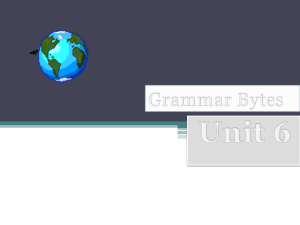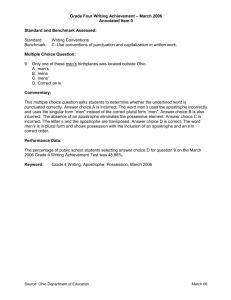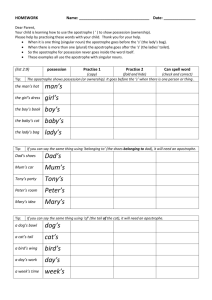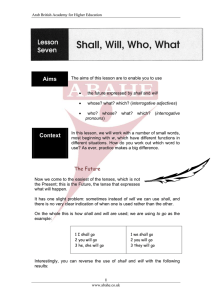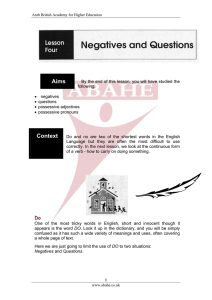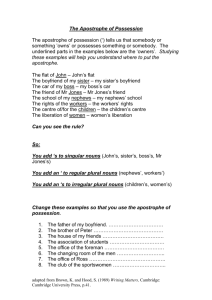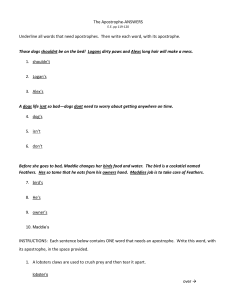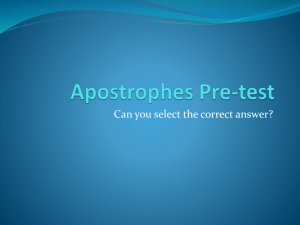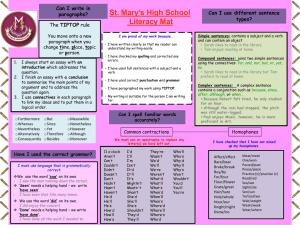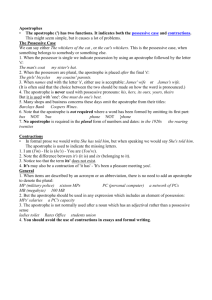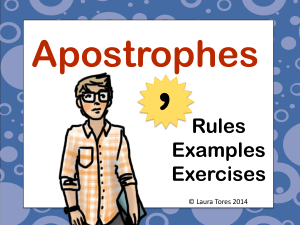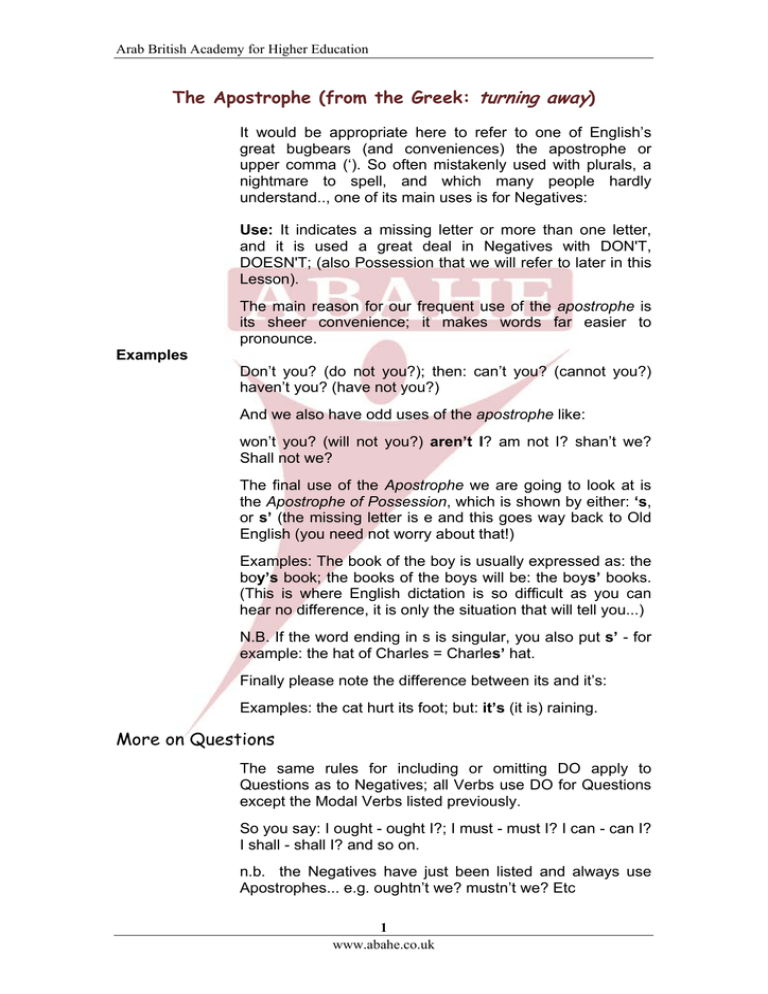
Arab British Academy for Higher Education
The Apostrophe (from the Greek: turning away)
It would be appropriate here to refer to one of English’s
great bugbears (and conveniences) the apostrophe or
upper comma (‘). So often mistakenly used with plurals, a
nightmare to spell, and which many people hardly
understand.., one of its main uses is for Negatives:
Use: It indicates a missing letter or more than one letter,
and it is used a great deal in Negatives with DON'T,
DOESN'T; (also Possession that we will refer to later in this
Lesson).
The main reason for our frequent use of the apostrophe is
its sheer convenience; it makes words far easier to
pronounce.
Examples
Don’t you? (do not you?); then: can’t you? (cannot you?)
haven’t you? (have not you?)
And we also have odd uses of the apostrophe like:
won’t you? (will not you?) aren’t I? am not I? shan’t we?
Shall not we?
The final use of the Apostrophe we are going to look at is
the Apostrophe of Possession, which is shown by either: ‘s,
or s’ (the missing letter is e and this goes way back to Old
English (you need not worry about that!)
Examples: The book of the boy is usually expressed as: the
boy’s book; the books of the boys will be: the boys’ books.
(This is where English dictation is so difficult as you can
hear no difference, it is only the situation that will tell you...)
N.B. If the word ending in s is singular, you also put s’ - for
example: the hat of Charles = Charles’ hat.
Finally please note the difference between its and it’s:
Examples: the cat hurt its foot; but: it’s (it is) raining.
More on Questions
The same rules for including or omitting DO apply to
Questions as to Negatives; all Verbs use DO for Questions
except the Modal Verbs listed previously.
So you say: I ought - ought I?; I must - must I? I can - can I?
I shall - shall I? and so on.
n.b. the Negatives have just been listed and always use
Apostrophes... e.g. oughtn’t we? mustn’t we? Etc
1
www.abahe.co.uk
Arab British Academy for Higher Education
Activity 2
Turn the following statements into questions:
a) Stephen has some chocolate in his pocket. (Two possible answers...)
b) You know the way to the station.
c) We can see the sea from the top of the hill.
d) You will please come in!
e) I am not very happy to see you.
f) We are going into town this morning.
g) The shops are open on Sunday this week.
h) Mary brings her bicycle into the shed.
All Rights Reserved © Arab British Academy for Higher Education
2
www.abahe.co.uk

